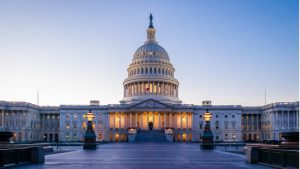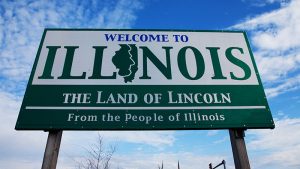Amid the COVID-19 pandemic, New York City’s 311 call center has answered a record-setting 23.5 million calls in 2020. Mayor Bill de Blasio’s office said the call count, which is the highest in the center’s 18-year history, was due to the unprecedented need for essential services and information.
California Governor Gavin Newsom announced that the state’s Cradle-to-Career Data System is now entering its next phase of development, marked by the hiring of Mary Ann Bates as its first director.
Following the state releasing its final biennial budget, North Carolina Community College System (NCCCS) announced funding wins for the state’s community colleges, and noted that the $1.46 billion investment in the community college system is the largest received over the past decade.
The House and Senate approved a bill that will support the adoption of “.gov” domains across to state, local, and tribal governments, as part of the provisions in the $1.4 trillion bill to fund the Federal government.
A new survey released by MeriTalk and Splunk finds that public sector IT decision makers are increasingly planning around zero trust security concepts, with that thinking driven by current and future requirements for telework capabilities, among other security management needs. However, agencies face challenges in migrating to zero trust, including the need to invest in foundational technologies, according to findings from the survey of 150 Federal IT decision makers and 150 state, local, and higher education (SLED) IT decisionmakers on their agencies’ efforts around zero trust.
Malicious actors are targeting K-12 schools with a strong increase in ransomware attacks and other cyber threats, according to a Joint Cybersecurity Advisory released December 10 by the Federal Bureau of Investigation (FBI), the Cybersecurity and Infrastructure Security Agency (CISA), and the Multi-State Information Sharing and Analysis Center (MS-ISAC).
After months with no movement and a weekend full of deal-making, Congress is expected to pass a $900 billion COVID-19 relief package as part of a broader Fiscal Year 2021 (FY21) omnibus spending bill. The relief includes a new round of Payment Protection Program (PPP) funding, money for broadband deployment and emergency use, and money to remove banned Huawei and ZTE equipment.
The State of Illinois has launched the Connect Illinois Computer Equity Network, which is intended to expand digital access for low-income households throughout the state.
According to a new report, Minnesota, California, and Florida are leading the way when it comes to preparedness for both cybersecurity and civic tech challenges.
This fall, the University of Notre Dame decided to bring students back to campus. Given the pandemic, this choice meant that the university needed to stand up a testing and contact tracing effort, as well as establish isolation and quarantining locations.












